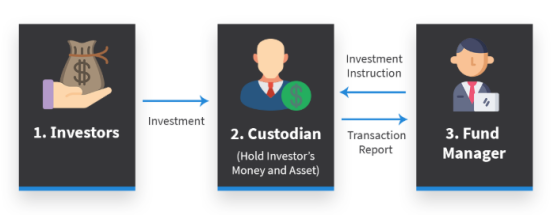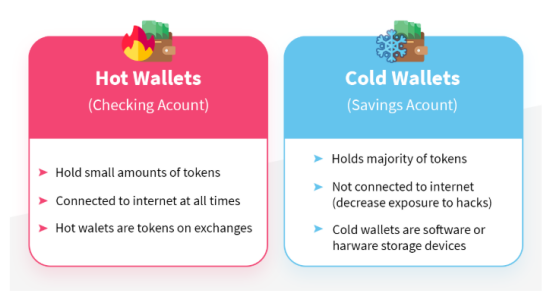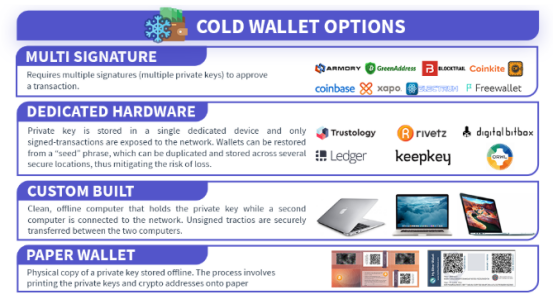Perspectives | The impact of digital assets on the global hosting market
This paper introduces the content of the digital hosting era from four aspects: the origin of the hosting service, the operating principle, the impact of digital asset custody on the global hosting market, and the uncertainty of platform supervision.
For a long time, the digital asset field has been unable to provide institutional-level encryption asset custody services, which is one of the factors that restrict institutional investors from entering the encryption market.
It will take some time for regulators to develop appropriate regulations for crypto asset escrow companies. However, it is still necessary to share with you the major developments related to digital asset custody.
1. History and technical characteristics of the trusteeship system;
- QKL123 market analysis | Bitcoin computing power breaks 100 EH/s, Ethereum is accepted by BitPay (0917)
- Research Report | Blockchain and Social Innovation Blueprint
- Li Lihui, former president of Bank of China: Digital technology reform will reconstruct the economic model, China should seize the digital economic dominance
2. The operation principle of traditional trusteeship;
3. Digital asset custody and its impact on the global custody market;
4. Supervision and operation of existing digital asset regulations.
1. A brief overview of the origins of managed services
Before the advent of traditional asset custody services, people must keep documents that prove they have the right to demand investment. As you can imagine, this method of tracking investment ownership is both cumbersome and unsafe. After the stock market crash in 1929, trust companies and financial intermediaries began to provide custody services and took responsibility for helping investors clear and transfer stock certificates.
As with previous self-hosting methods, hosting solutions during this period are also cumbersome. Under the inefficient management system of securities market growth and over-reliance on paper, the Trust and Clearing Corporation DTCC came into being in 1973. Since then, DTCC has evolved into a clearing certificate and an actual issuance agency for centralized ledgers.
The surge in global investment products has created a domino effect, with several financial institutions developing into well-known global hosting companies. However, the birth of Bitcoin and the explosive growth of blockchain-related solutions have changed the overall outlook for the asset custody market. The innovation culture in the field of encryption and the investment in the field of encryption have played a crucial role in solving the security problems of digital assets.
2. What is hosting?
In order to fully grasp the challenges of digital asset custody services, it is important to understand the concept of custody in the traditional investment market.
Only professional investors who are licensed by the SEC (US Securities and Exchange Commission), or institutional investors, can invest in traditional assets, ie deposit cash or assets in a registered third-party custodian. Unlike the encryption market, traditional asset investors are registered (qualified) custodians responsible for depositing, recording, and transferring securities. In addition, under federal and state laws, custodians must meet certain conditions that prevent misappropriation of funds and fraud.
The custodian regularly sends account statements to investors to update the assets they hold to the investors. It can be seen that the custodian is directly managing the assets rather than the investment consultant.
Asset flow in traditional financial services

3. Digital asset custody and its impact on the global custody market
When Bitcoin first appeared, few people could think of the explosive growth of the encryption market. The performance of blockchain technology has exceeded expectations and has brought about a disruptive force in two key areas as an investment vehicle and a viable alternative to traditional systems. In just a decade, the crypto market has attracted millions of investors because of its speculative nature. Regulators are more worried than ever about their rapid development.
As mentioned above, it comes with security issues regarding the digital nature of cryptocurrencies and their unconventional storage modes. The cryptocurrency makes it possible to decentralize the network. Unlike the traditional hosting market, token holders can keep their own token assets on this decentralized network.

The cryptocurrency has an encryption feature that allows the holder to access the digital asset only through a private key (similar to a password, but more complex). Although this is an effective security protocol, the fly in the ointment is that losing the private key will not be able to access and recover its digital assets.
This allows developers to introduce a variety of private key storage solutions. Currently, there are three main storage systems in use:
Hot storage: This storage method means that the holder (especially the trader) saves the private key online so that it can be easily accessed. But this makes digital assets vulnerable to hackers.
Cold storage: An offline storage system such as a USB or a specially crafted digital asset storage device. Because it requires manual access to the private key, it is considered a safer alternative to hot storage.
Multi-signature: Multi-signature is a more flexible system that provides a distributed form of private key storage in which multiple entities are required to sign transactions. This solution creates a multi-signature system that requires the signature of all signers before the transaction is approved.

The above three storage solutions are only for individuals, and there has been a call for a platform-level storage system to be supervised to meet the era of institutional digital asset investment. Although encrypted hosting services are not new to the encryption field, it was not until 2018 that large financial institutions began to enter the encryption field, along with Coinbase, Fidelity Digital Assets (a subsidiary of Fidelity Investments), BitGo, Kingdom Trust, Led by Anchorage, Gemini Trust and Northern Trust, the crypto hosting market is sprouting.
The custodian is working hard to improve the standards for managed services, including introducing insurance and standard boosts to ensure that lost assets are repaid. For example, under Section 100 of the New York Banking Act, the Gemini Trust Company was approved as a trustee.
The most important thing is to determine the impact of these developments on regulation and how institutional investors and financial professionals can adapt to these changes.
“Fortunately, companies such as Fidelity, Gemini, Coinbase, BitGo, and Bakkt offer some safe and well-regulated hosting options, and the options market is rapidly emerging. In addition, the platform is more likely than individuals to get insurance to prevent losses. So, right For institutional investors and retail investors, the security barriers to encryption investment will no longer be a problem.” — Zac Prince, CEO of BlockFi
4. Uncertainty in the supervision of digital asset custody platforms
Individual investors like digital asset investment products, and institutional investors are still on the sidelines because investing in digital assets requires standard third-party hosting solutions to store digital assets, but there are currently no metrics for regulatory compliance. Institutional investors are afraid to act rashly and can only choose to wait and see.
More importantly, the custodian's impact on the volatility of the encryption market and how to deal with things such as hard forks (split the blockchain into two separate blockchains) are not clueless, plus no numbers The special regulations of asset custodians have hindered the development of encryption.
In response, Wyoming has enacted a regulation to authorize and manage the business of SPDI, an institution that enables banks to provide custody services to licensed Wyoming companies. After that, the US Financial Industry Regulatory Authority (FINRA) and the US Securities and Exchange Commission (SEC) issued a joint statement focusing on hosting requirements and customer protection rules.
Under this rule, broker-dealers must ensure that customer digital assets are safe and must be separated from company asset accounts. In this way, when the broker-dealer investment fails, it is possible to return the customer's digital assets to the customer. In addition, the requirement requires the broker-dealer to actually hold the client's digital assets or seek the services of a third-party custodian.
Although the SEC and FINRA statements are only an explanatory article, not an official statement, support for Wyoming's regulatory system also reflects the possibility that regulators may issue regulations to provide guidance to digital asset management companies.
"Hosted services are a key step in the institutionalization of the encryption economy… it will grow rapidly and become a meaningful and stable income for the company."
Source: first class warehouse
We will continue to update Blocking; if you have any questions or suggestions, please contact us!
Was this article helpful?
93 out of 132 found this helpful
Related articles
- Analysis: Aggregation Theory in DeFi
- Quantum Chain Shuai Chu: Only by jumping out of the "framework", the future application of blockchain can achieve greater development
- Twitter Picks | Spring in Ethereum? BitPay Announces Support for ETH, $100 Million Real Estate Chain Ethereum
- The Queensland Real Estate Institute of Australia will launch a blockchain leasing agreement platform to empower the leasing industry with smart contracts
- Non-serious discussion on blockchain finance from "self-tearing" (2): reality and current situation
- In just one year, the founder of the coin printing moved the cheese of the old club
- With $394 USDT and $12,000 bitcoin, Kraken has a two-time price anomaly. Have you sold it?






